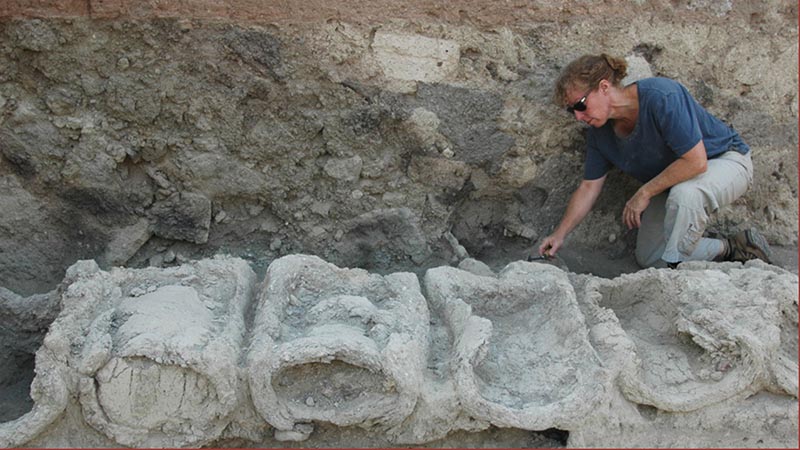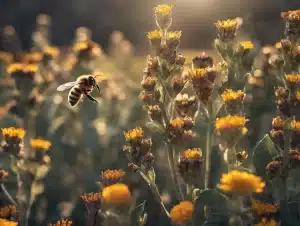Who Invented Beekeeping? Tracing the Ancient Origins of Apiarian Husbandry!
In the enchanting world of beekeeping, the quest to uncover the origins of this ancient art is as intriguing as a captivating tale told by a master storyteller.
“Who invented beekeeping?” you ask, as the mystery beckons us back to a time lost in the sands of history.
Bee Ware™, the Centurion-based champion of beekeeping wisdom, invites you to embark on this mesmerizing journey as we traverse through time in search of the ingenious minds behind the ancient practice of beekeeping.
As we dive into the annals of time, the origins of beekeeping take us back to the depths of antiquity. Bee Ware, with its ambassador campaign full of humour and historical intrigue, is here to unravel the enigma and share the timeless tale of the inventors of beekeeping.
The question of “who invented beekeeping?” is an intriguing historical puzzle that spans cultures, civilizations, and millennia.
While the exact origin of beekeeping remains shrouded in the mists of time, various historical references and archaeological evidence provide insight into the ancient roots of this practice.
Ancient Foragers: The First Beekeepers
The tale begins with early human tribes, wandering amidst the beauty of nature, discovering the hidden wonders of the wild honeybee colonies. These resourceful foragers stumbled upon nature’s sweet secret—wild honey—and embraced the symbiotic relationship with bees.
Thus, the dance of beekeeping was born, much like a captivating improvisation by a brilliant comedian.
The earliest traces of beekeeping can be linked to ancient foraging societies. Human communities, perhaps as early as the Stone Age, would have observed and followed wild bees to their nests, collecting honey, beeswax, and bee larvae. These endeavors laid the foundation for the coexistence of humans and bees, setting the stage for more organized beekeeping practices.
The Khoi San – a tribe of Southern Africa was and is still one of these tribes today. Read more about their legacy in beekeeping history.
Ethiopians have a great ancient beekeeping tradition which continues today. The country produces approximately 45,300 tonnes annually compared to South Africa’s 3000 tonnes.
Indigenous Peoples and Traditional Practices
It’s important to recognize that many indigenous communities worldwide have practiced beekeeping in various forms for generations.
The Khoi San people of southern Africa, for example, have a long history of harvesting wild honey from natural hives.
Similarly, the indigenous Maya civilization of Mesoamerica practiced stingless beekeeping, utilizing these bees for their honey and pollination services.
Ancient Egypt: Guardians of Apiculture
Our journey leads us to the fertile lands of ancient Egypt, where beekeeping flourished alongside the Nile. The Egyptians revered bees and considered honey as a precious gift from the gods. Honey production and the use of clay hives were documented in ancient hieroglyphs, showcasing the early artistry of beekeeping.
One of the earliest documented instances of intentional beekeeping comes from ancient Egypt. Hieroglyphs and art from as far back as 2400 BCE depict beekeepers tending to cylindrical hives and extracting honey.
The Egyptians held bees in high regard, viewing honey as a gift from the gods. They recognized the value of beekeeping not only for honey but also for the pollination services provided to their crops.
Historic Greece: Wisdom and Observations
Fast forward to the golden era of Greece, where scholars and philosophers like Aristotle and Virgil observed the wonders of bees with keen eyes and curious minds. Their writings offered valuable insights into bee behavior, marking an important step in the understanding of beekeeping.
The ancient Greeks and Romans, renowned for their intellectual pursuits, contributed to the understanding of bee behavior. Scholars like Aristotle and Virgil wrote about bees and their habits, providing early observations that laid the groundwork for more systematic beekeeping practices.
Monastic & Medieval Beekeepers: Keepers of Tradition
As centuries passed, beekeeping traditions thrived in the monasteries of medieval Europe. Benedictine monks, like Brother Adam of the 20th century, devoted their lives to the art of beekeeping and bee breeding.
With their meticulous care and dedication, these monastic beekeepers preserved and advanced the craft of apiculture.
During the medieval period, monasteries in Europe played a pivotal role in preserving and advancing the art of beekeeping.
Brother Adam, from Buckfast Abbey in the UK, dedicated themselves to the careful breeding of bees and the improvement of hive designs. These monks not only sustained the practice of beekeeping but also shared their knowledge, passing it down through generations.
Petro Prokopovych, of Ukraine, innovated the movable hive and hive frames in the 1800s and went on to bee the forefather of commercial beekeeping operating 10,000 hives.
Evolution of Beekeeping Techniques
Over time, beekeeping evolved from simple honey gathering to more sophisticated techniques. The use of skeps, also skep hives—domed baskets made from woven straw or grass—became a common method of housing bees in Europe during the Middle Ages. These innovations marked a transition from opportunistic honey gathering to intentional beekeeping.
In summary, the invention of beekeeping is a culmination of human ingenuity and observation spanning different cultures and epochs. While it’s difficult to pinpoint a single individual or culture responsible for inventing beekeeping, the practice developed organically as humans interacted with bees and hives, recognizing the benefits of their partnership.
From ancient foragers to medieval monks, humanity’s journey alongside bees continues to captivate our fascination with the sweet world of apiculture.
Conclusion
The journey to uncover the inventors of beekeeping takes us through the mists of time, across civilizations and cultures that have cherished the sacred dance of bees.
From ancient foragers to the wise scribes of Egypt, and the dedicated monks of medieval Europe, the story of beekeeping is a testament to humanity’s admiration for nature’s wonders.
As we bask in the wisdom of the ages, Bee Ware™ invites you to be a part of this timeless legacy. Visit our hive at www.beeware.co.za to learn more about the inventors of beekeeping and to join us in celebrating the art, science, and magic of beekeeping.
Together, let us honour the ingenious minds of the past and continue the unbroken tradition of beekeeping with humour, passion, and reverence for our winged companions!




